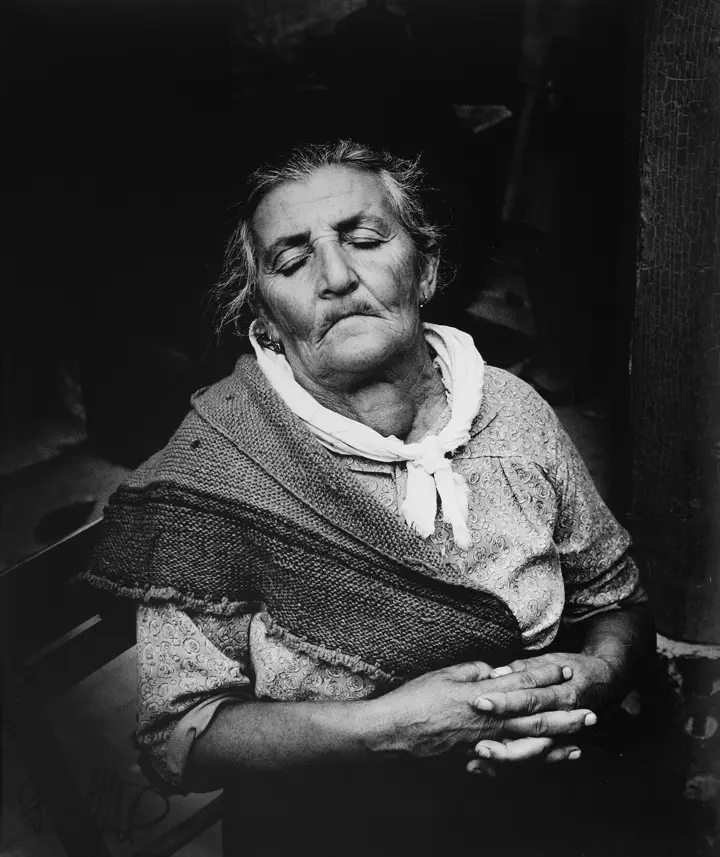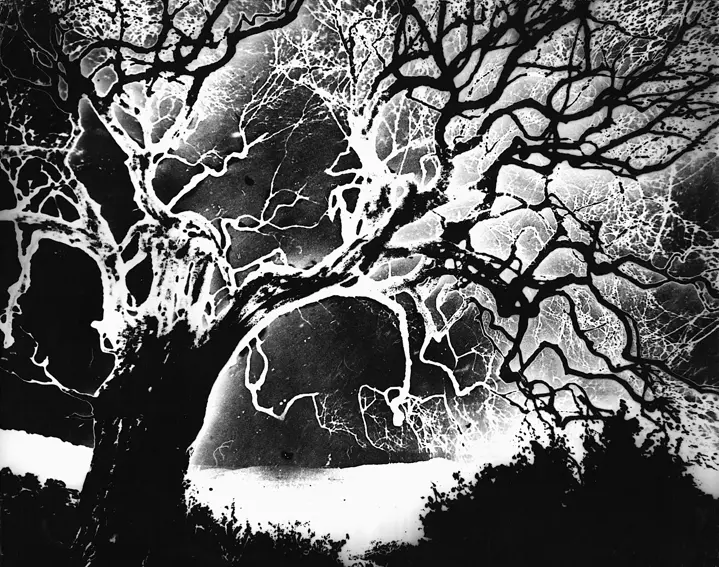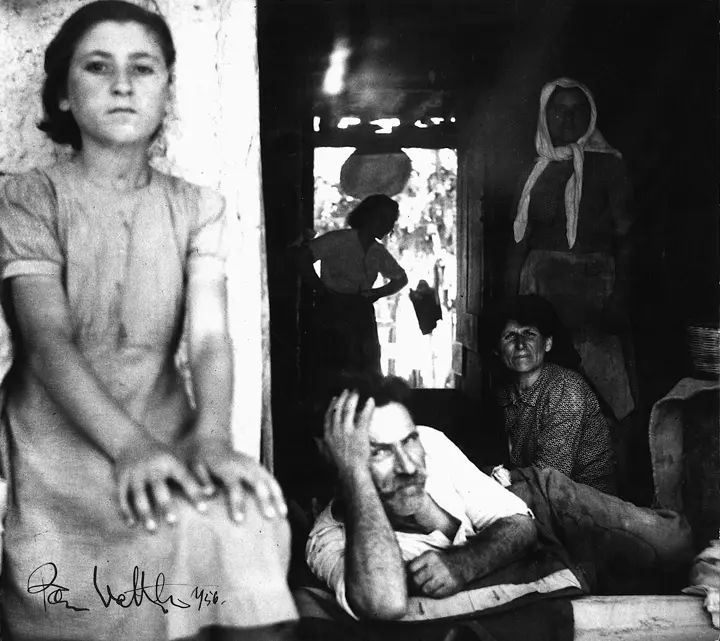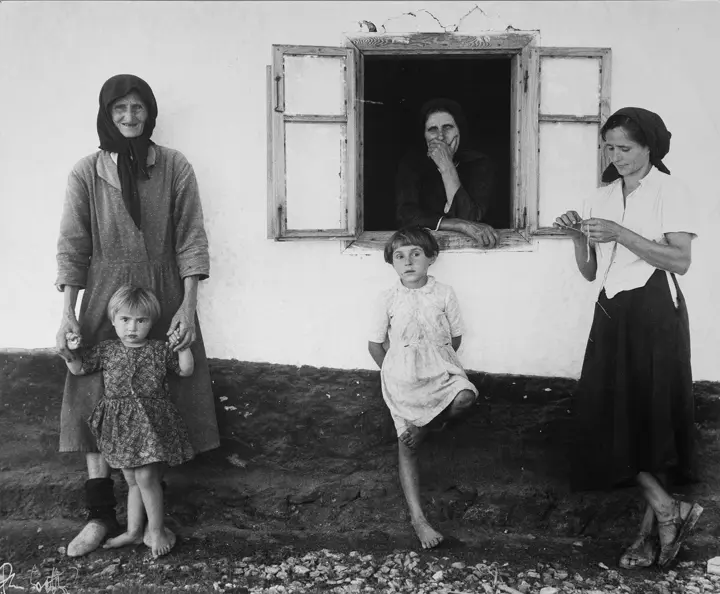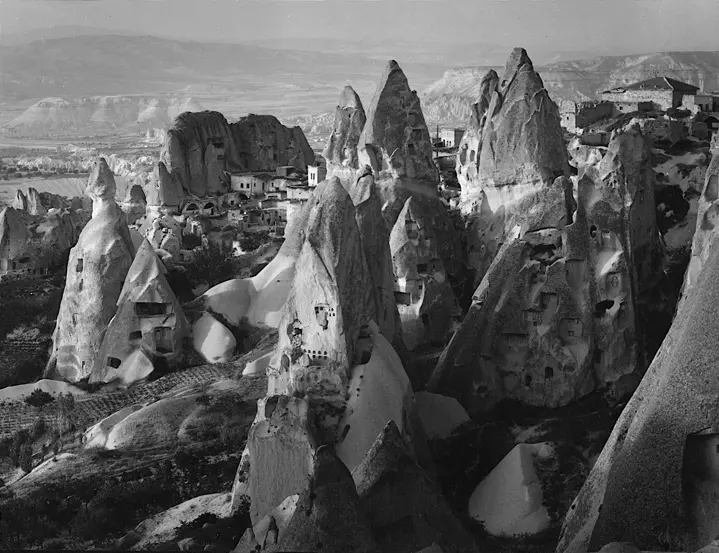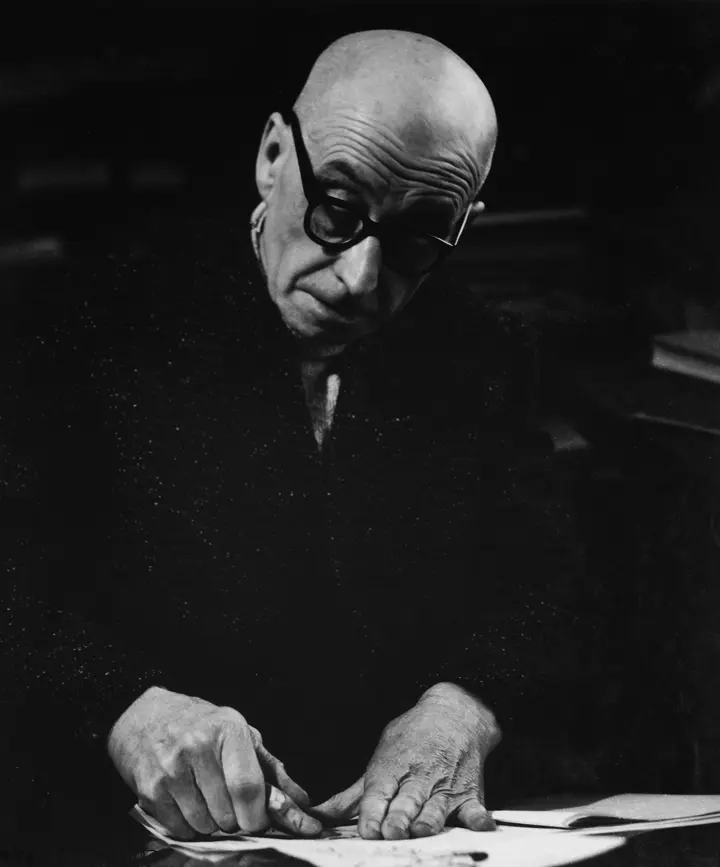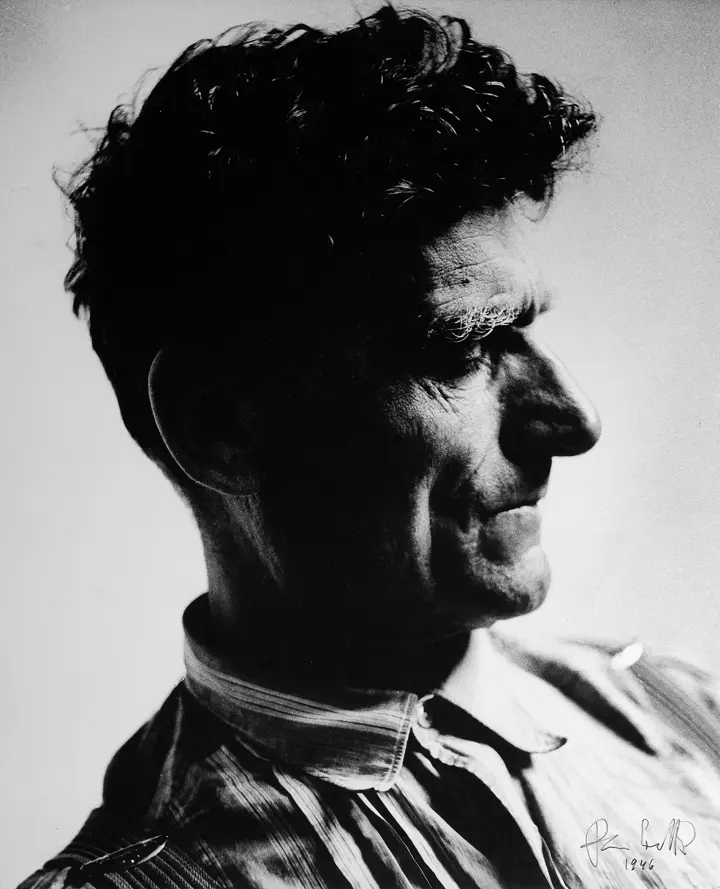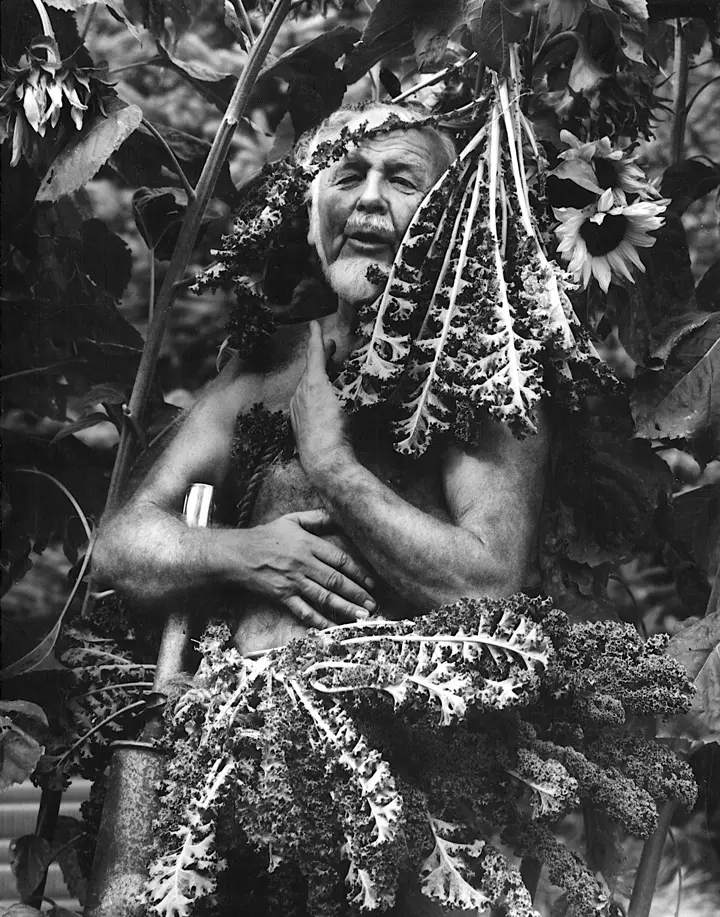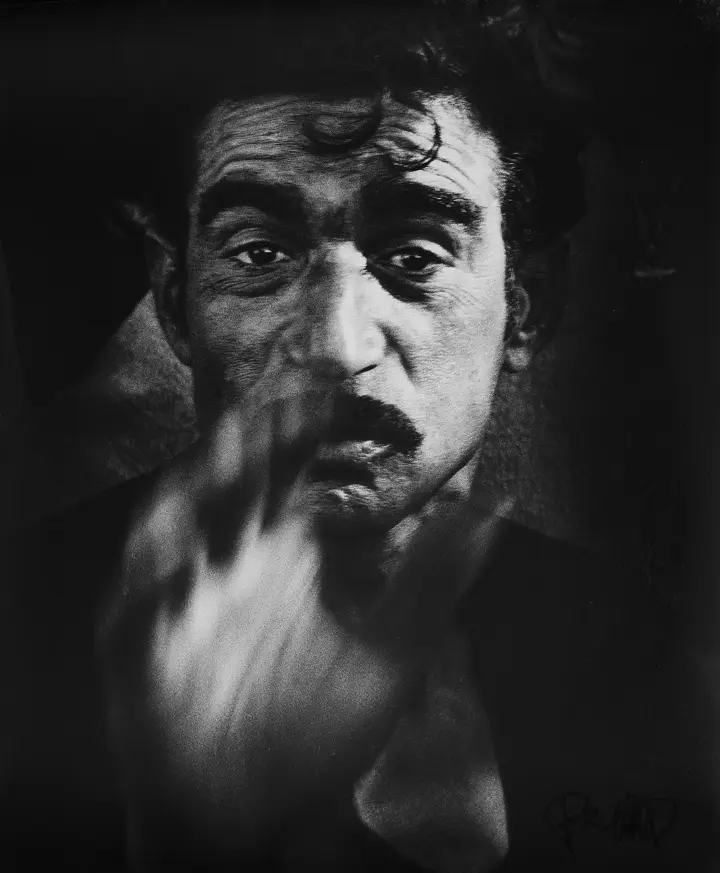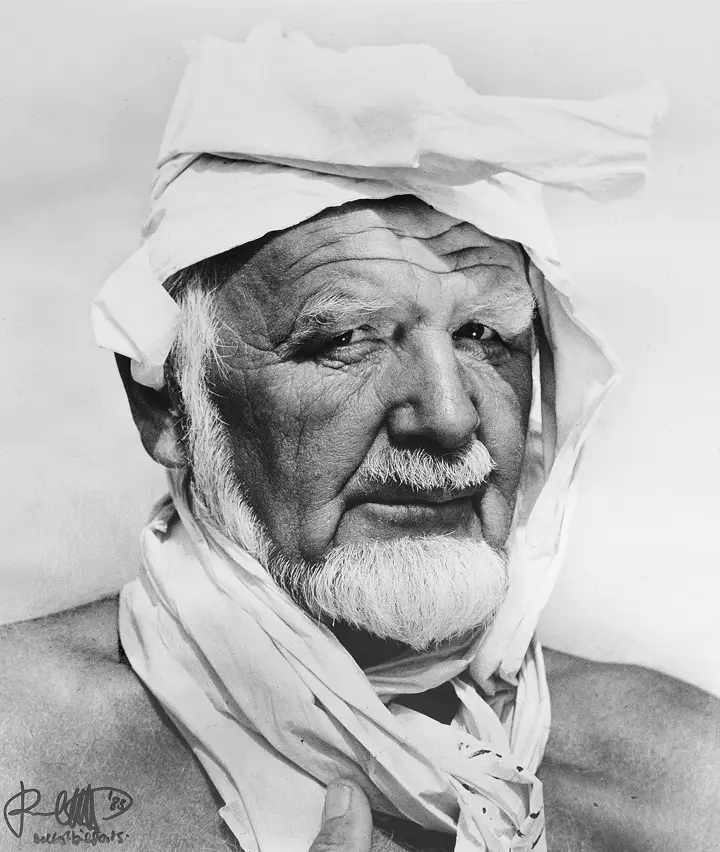Portrait, landscape, and photography are at the core of Pan Walther's decades-long career. Characteristic of the artist are photos with stark black and white contrasts, backlighting, unique perspectives, and distortion effects. Trained in the Netherlands and influenced by portrait art, Walther developed his own method in the 1940s that defies classification into a single style. He focused on portraits with neutral backgrounds, close compositions, and studied light and perspective before capturing images of notable figures like Wilhelm Rudolph and Josef Hegenbarth.
In 1950, Walther moved from Dresden to Münster with his wife, photographer Christine Bellmann, and established a new studio where both renowned figures and landscapes became his subjects. Despite his fondness for the Mediterranean region, he continued to prioritize capturing the essence of people, particularly Sinti and Roma in Saintes-Maries-de-la-Mer. Through his photography, Walther depicted their customs and honored their patron saint, Black Sara, with atmospheric and sometimes poetic imagery. From experimenting with fine tonal printing to expressing through bold black and white compositions, Walther's creative process was crucial in the darkroom to finalize his artworks, showcasing his innovative use of artistic techniques in images of landscapes like Kappadokien and the island of Krk.
Until around 1980, Walther focused on individual images and operated behind the camera, but he later transitioned to becoming his own model, portraying various roles in increasingly expressive and provocative ways. With each photograph originating from Walther's hands and following his principles, he articulated his artistic vision through intense self-portraits and experimental compositions. His dedication to photography was further established through written works such as "Seeing, Sensing, Creating" and "Artistic Portrait Photography," published in 1981 and 1986 respectively.
Pan Walther, one of the most significant German portrait photographers post-1945, was born on November 10, 1921 in Dresden. Throughout his career, Walther enriched the development of photography with his unconventional portrait style. He passed away on November 14, 1987 while on a trip to Bangkok, leaving behind an extensive body of work that includes diverse landscapes and portraits from various regions of Europe and North Africa.
Leica Gallery Constance
Gerichtsgasse 14
78462 Constance
Germany
Saturday 9.30 a.m. - 2.00 p.m.
